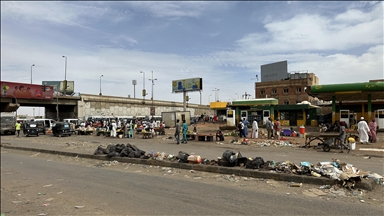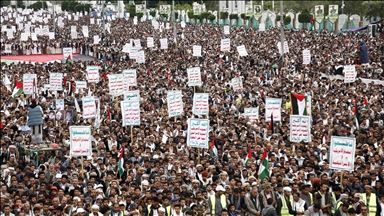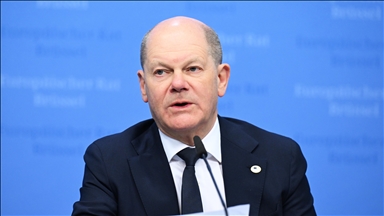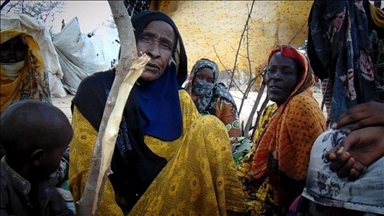UN envoy urges all actors to work toward de-escalation in Yemen
"It is imperative that all parties keep channels of communication open and do not lose focus on delivering results," says Hans Grundberg
 Houthi member carrying heavy weapon at the Bani Hushaish area in Sanaa, Yemen on January 22, 2024.
Houthi member carrying heavy weapon at the Bani Hushaish area in Sanaa, Yemen on January 22, 2024.
TORONTO, Canada
The UN Special Envoy of the Secretary-General for Yemen, urged all actors in Yemen on Thursday to work toward de-escalation with an aim for a peace process.
"In order to protect progress on the peace process, I urge all those involved to exert exercise maximum restraint and work towards de-escalation," Hans Grundber said at a UN Security Council meeting.
Reiterating the UN chief's warning about the risk of further spillover of the Gaza Strip’s conflict across the region, Grundberg noted that "hostilities have remained at relatively low levels compared to the pre-2022 truce period," in Yemen but fighting was seen in the southern and coastal provinces.
The envoy also voiced concerns by Yemenis about a potential escalation in internal fighting. "We must do all we can to prevent this," he said
Grundberg underscored that it is the only viable path toward resolving the conflict and said his primary focus remains to get a cease-fire and initiate a political process.
"It is imperative that all parties keep channels of communication open and do not lose focus on delivering results," he added.
Grundberg emphasized the critical importance of supporting the freedom of movement of people and goods across Yemen.
He declared that facilitating movement remains a top priority for his office, affirming readiness to assist as necessary.
Edem Wosornu, director of the UN Office for the Coordination of Humanitarian Affairs Operations and Advocacy Division, reiterated Grundberg’s call for "de-escalation in Yemen and for the parties to recommit to the path of civility and peace."
"Levels of food insecurity and malnutrition have surged in recent months, posing a real and increasing threat to the lives and well-being of millions of people, particularly women and children," said Wosornu.
Noting that the World Food Programme's "overall requirement is $230 million to cover three food distribution cycles for the most vulnerable families in Houthi-controlled areas," the OCHA director urged donors to step in to fund the program.
"We appeal to donors to provide the urgent financial support required to tackle food insecurity and other pressing humanitarian needs, as well as livelihood support. This remains a lifeline for the people of Yemen, and we depend on the timeliness of this funding," she added.
Yemen has fallen into civil war since 2014 when Iran-backed Houthi rebels seized much of the country, including the capital, Sanaa, forcing the internationally recognized government to set up an interim capital in the coastal city of Aden.
The UN estimates that in 2024, more than 18 million people, over half the population, will need humanitarian assistance and protection services in Yemen.
According to UN figures, 17.6 million people will be severely food insecure and an estimated 2.7 million women and 5 million children under the age of 5 will need treatment for acute malnutrition.








